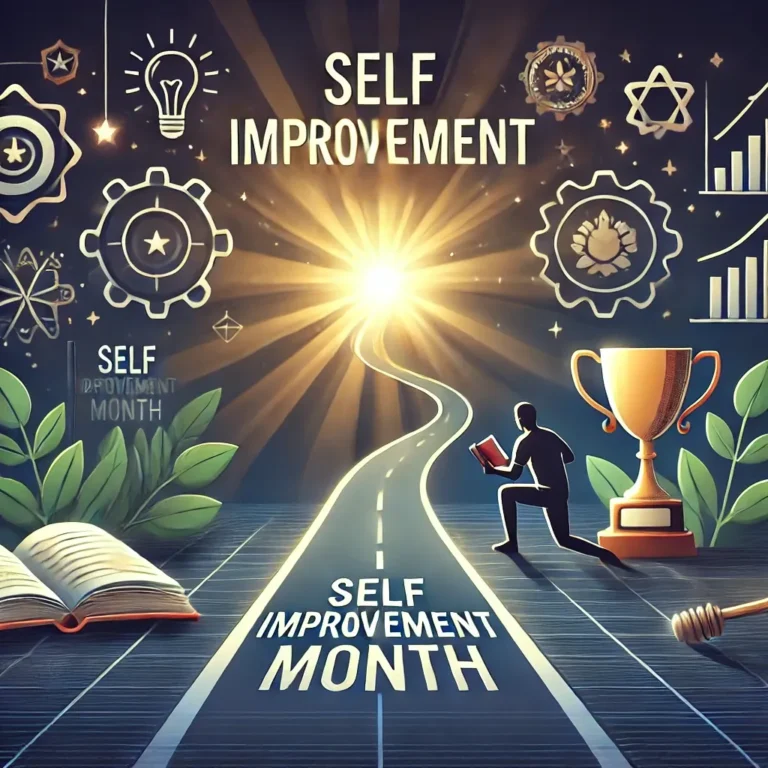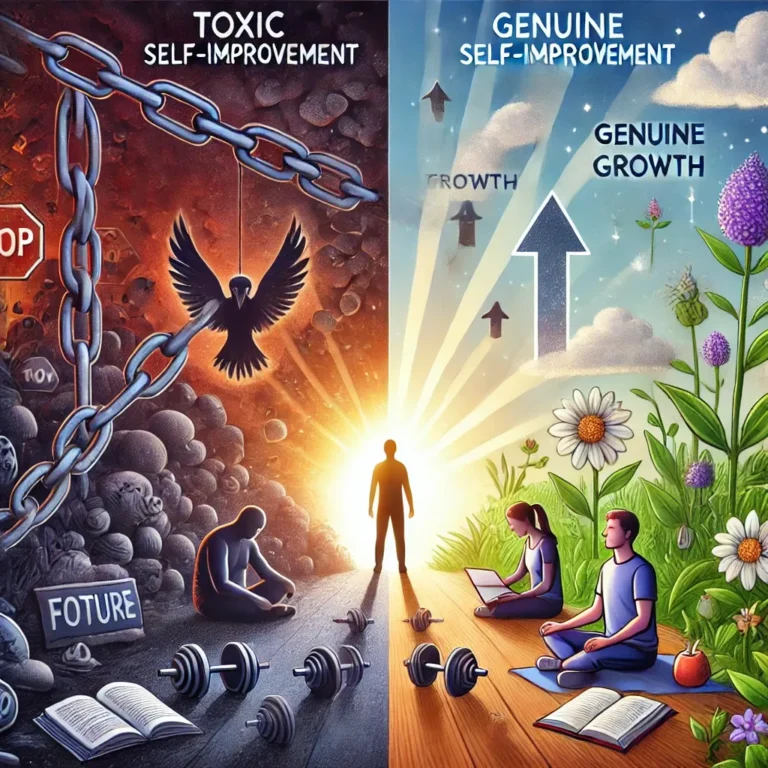Building Self-Love: A Pathway to Personal Growth and a Brighter Future
Self-love is the foundation of our personal development journey. Building self-love is not only about creating a positive image of ourselves, but more like establishing an in-depth security and understanding within us that will help drive our personal growth into becoming the best version of ourselves, allowing resilience for any challenge we face with determination to have a better future. In this post, we get into the granular details of practicing self-love – backed by research, lived and shared experience to help you grow through it.
Understanding Self-Love
What is Self-Love?
Self-love is the love of oneself, which includes loving oneself for their happiness and well-being. It includes self-respect, self-acceptance, and loving yourself. Psychologist Dr. Kristin Neff says self-love means treating yourself as you would a close friend — with kindness and concern, even when angry at your decisions or behavior.
The Importance of Self-Love
According to studies, self-love is important for the health of our brains! Certain scientific studies have confirmed that self-love is really imperative in psychological well-being. One study out of the Journal of Personality discovered that people who practice self-compassion are happier, more optimistic, and satisfied with their lives. They are also a lot less prone to depression and anxiety.

The Science Behind Self-Love
Psychological Insights
Self-compassion and mental health: Research by Dr. Neff illustrates that self-compassion decreases psychological distress. It involves three components:
- Self-Compassion: Kindness toward oneself when feeling stressed, disappointed, or inadequate.
- Common humanity: The sense of recognizing, “Hey… I suffer and am not perfect; but you know what? feeling that way is just an intrinsic part of being human”.
- Mindfulness: Painful thoughts and feelings are held in balance, not over-identified with.
The neuroscience behind self-love: Studies have shown that loving yourself lights up parts of the brain associated with positive emotions and overall well-being. The prefrontal cortex, involved in self-referential processing, is more activated during self-compassionate practices.
How Self-Love Affects Physical Health
According to a study from the Journal of Behavioral Medicine, people with higher levels of self-love related to better physical health. Individuals who love themselves are more likely to partake in healthy practices like exercising, eating well, and getting enough sleep, which then improves their lifestyle.
Barriers to Self-Love
Common Obstacles
- Negative Self-Talk: Low self-worth and low confidence will tear a person down, in particular with critical inner dialogues.
- Perfectionism: Seeking unreachable standards just leads to continual disappointment.
- Social Comparisons: Always comparing yourself to others is a quick way of always feeling not good enough.
- Trauma: Past trauma can damage self-esteem and personal acceptance.
Overcoming Barriers
- Mindfulness and Meditation: Practices like mindfulness meditation can assist in raising awareness of your thinking patterns, acknowledging them without judgment, and reframing them into positive thoughts.
- Cognitive Behavioral Techniques: CBT is designed to spot and change maladaptive thinking styles.
- Therapeutic Interventions: Therapy, including trauma-focused therapies, can help in the resolution of past scars.
Actionable Tips to Help Foster Self-Love
Daily Practices
- Repeat After Me: Regularly reciting positive affirmations can help to reprogram the brain and create a more favorable self-view. Examples include:
- I deserve respect and love.
- I love and accept myself exactly the way I am.
- Keep a Gratitude Journal: Writing down what you are grateful for provides contrast and helps to increase contentment, as well as developing feelings of self-assurance.
- Self-Care Practices: Commit to things that feed your mind, body, and spirit. This can include:
- Taking relaxing baths.
- Enjoying nature walks.
- Hobbies that Bring Happiness
Constructing Healthy Relationships
- Having Boundaries: To preserve your self-esteem and well-being, you need to have boundaries.
- Positive Habits, Positive People: Surround yourself with people who lift and support your growth.
Professional Help
- Therapy and Counseling: Work with a professional to create personalized techniques for emotional well-being.
- Support Groups: Participating in groups where individuals are also facing similar challenges can create a sense of camaraderie and connection.
Learning As Part Of Self-Care
Enhancing Self-Esteem
Self-love IS self-esteem! To build greater confidence, you must start building up your love for yourself. If you love yourself and consider your life to have value, confidence is like oxygen.
Fostering Resilience
Self-love gives you the ability to rise and move past challenges. Compassion for yourself during hardship will only make you more emotionally resilient and strong.
Unlocking Potential
Self-love is knowing that you are capable of doing great things. It motivates you to chase your goals and dreams with increased vigor.
The Connection of Self-Love to Our Future
Positive Life Choices
When we love ourselves, we make decisions based on what is truly most in alignment with our values and desires, leading to a richer, more aligned life.
Inspiring Others
In embodying self-love, you inspire others to embark on their own journey of love and empowerment, creating a ripple effect.
Contribution to Society
People who learn to love and accept themselves are more positive contributors to society. They act selflessly and support social good.
True Stories of Loving Yourself to Wholeness
Sarah’s Firm Journey of Self-Acceptance
For Sarah, it was years of low self-esteem and comparing herself to others. After joining a self-love workshop that involved practicing daily affirmations and mindfulness, she noticed a dramatic change in her happiness and self-acceptance.
How John Healed
John had trouble accepting and loving himself after a trauma. By going to therapy and support groups, he gained a clearer understanding of his past, making it easier for him to have compassion for himself. John is now a mental health advocate and speaker, sharing his story to help others heal.
Conclusion
Creating self-love is a lifelong journey that requires hard work, dedication, patience, and practice. By understanding the necessity of self-love, overcoming obstacles, and taking small steps, you can ignite a profound love within yourself, making your future brighter—not just for yourself but also for those around you. Remember, your path to self-love will look different from someone else’s journey, but the end goal—a life lived with dignity and kindness, one where we find fulfillment and peace internally—is shared. Surrender to the journey and enjoy watching yourself grow in beautiful, serendipitous ways.
References
Neff, K. (2011). Self-Compassion: The Proven Power of Being Kind to Yourself. William Morrow.
Gilbert, P. (2009). The Compassionate Mind: A New Approach to Life’s Challenges. New Harbinger Publications.
Journal of Personality. (2019). Imagine how self-compassion can boost your mental health and well-being…
Journal of Behavioral Medicine (2018). Correlating Self-Love and Health Benefits.
American Psychological Association – APA (2020). Mindfulness Meditation + Self-Compassion.






